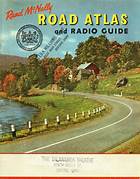On September 20, 1933, the Pittsburgh Steelers, one of the most iconic and successful franchises in the National Football League (NFL), were officially established. This marked the beginning of a storied history that would see the team become a beloved symbol of Pittsburgh and a perennial contender in professional football.
The Pittsburgh Steelers were initially known as the Pittsburgh Pirates, named after the city's Major League Baseball team. The team was founded by Art Rooney, a prominent businessman and sports enthusiast who saw the potential for professional football to thrive in Pittsburgh.
In their early years, the Pittsburgh Steelers faced numerous challenges and struggled to find success on the field. They played their home games at Forbes Field, a baseball stadium that was not ideally suited for football. Additionally, the team faced financial difficulties during the Great Depression, which further hindered their growth and development.
Despite these obstacles, the Steelers persevered and gradually began to make their mark in the NFL. In 1940, the team changed its name to the Pittsburgh Steelers to better reflect the city's industrial heritage. This change also coincided with a new era of stability and growth for the franchise.
Throughout the decades, the Pittsburgh Steelers have been characterized by a strong commitment to excellence and a rich football tradition. The team has boasted numerous Hall of Fame players, legendary coaches, and a passionate fan base that has supported them through thick and thin.
The Steelers have experienced periods of great success, with multiple Super Bowl championships and numerous playoff appearances. They have been known for their dominant defenses, led by iconic players such as "Mean" Joe Greene, Jack Lambert, and Troy Polamalu. Offensively, the team has showcased dynamic playmakers like Terry Bradshaw, Franco Harris, and Ben Roethlisberger.
Beyond their on-field accomplishments, the Pittsburgh Steelers have also been recognized for their strong sense of community and philanthropic efforts. The team has been actively involved in various charitable initiatives, supporting causes such as education, healthcare, and youth development in the Pittsburgh area.
The Pittsburgh Steelers have become a cultural institution in Pittsburgh, ingrained in the fabric of the city's identity. The team's black and gold colors are proudly worn by fans across the region, and game days at Heinz Field are a spectacle of passion and enthusiasm.
The Steelers' success has helped uplift the spirits of Pittsburgh during challenging times. The team's Super Bowl victories in the 1970s provided a sense of pride and unity to a city grappling with economic decline. The Steelers' resilience and determination on the field mirrored the spirit of Pittsburgh itself.
As the Pittsburgh Steelers celebrate their establishment on September 20, 1933, they continue to be a symbol of excellence, perseverance, and community. The team's rich history, iconic players, and passionate fan base have made them one of the most respected and beloved franchises in the NFL.
The legacy of the Pittsburgh Steelers extends far beyond the football field. They have brought joy and inspiration to millions of fans, and their commitment to the community has made a tangible impact on the lives of many. As the team looks to the future, the Pittsburgh Steelers will undoubtedly continue to be a source of pride for the city and a symbol of the enduring spirit of Pittsburgh.





